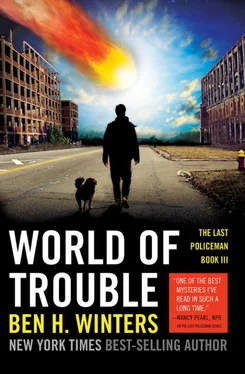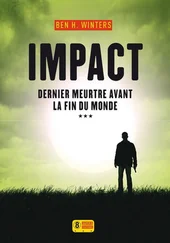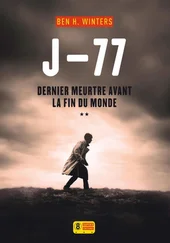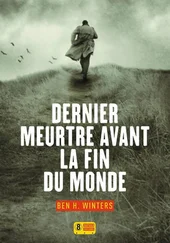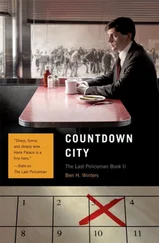“Okay,” she says. “Okay.” She licks her dry lips nervously, pushes one stray lock of black hair behind one small ear, a simple gesture redolent of who she is, a girl in her late teens or early twenties, a kid who got lost in something terrible and strange.
“So I’m really…” I smile one more time, try to make the smile look human. “I’m really wanting to figure out what happened.”
“But I don’t know,” she says. “I don’t remember. It’s all like this—I don’t know.” Glances up at me, scared, touches the thick gauze on her neck. “It’s all black.”
“Not everything, though, right?”
She shakes her head, barely, a tiny motion.
“Not your whole life?”
“No,” she manages, glancing up. “Not my whole life.”
“Okay, then. So we’ll start with what you do remember, okay?”
“Okay,” she whispers.
It’s not okay. It’s really not. What I want to do and what I would do if it would work is lift her and shake her by the feet until the facts come flying out like coins from her pockets. But this is how the process works. It works slowly. It’s impossible to tell at this point what portion of her not remembering stems from literal amnesia, what portion from the atavistic fear of reliving whatever horrors she has encountered. The necessary tactic in either case is bound to be patience, small steady movement through the fog, toward the truth. You build trust: Here are the things we both know. Here are the things we are going to talk about. You coach. You coax. It can be hours. Days .
I slip through the bars onto her side of the room and place my coffee cup carefully on the floor and take a knee like I’m going to propose.
“You had this bracelet in your pocket, with the charms,” I say. “The lilies. So that’s why we called you Lily.” She lifts it hesitantly from my hand and then presses it in her palm, folds her fingers around it tightly.
“My parents gave it to me.”
“A-ha.”
“When I was little.”
“Gotcha. Nice. But, so—what is your name?”
She says something, in the back of her throat, too soft for me to hear.
“I’m sorry?”
“Tapestry.”
“Tapestry?”
She nods. Sniffs a little, wipes a tear from the corner of her eye. I feel a dim glow of knowledge in the darkness between us, the first teardrop bulb glowing on in a string of Christmas lights.
“And is Tapestry a nickname?” I say. “A code name?”
“Yeah.” She looks up and gives a watery smile. “Both, sort of. We all have them.”
“A-ha.”
They all have them. Tapestry. Tick. Astronaut. Does Jordan have one of these nickname/code names, I wonder? Does Abigail? Tapestry’s black eye, I notice, is at the bare beginnings of the healing process, fading from dark purple to a soft bruised pink. She is—what? Nineteen? Twenty maybe. She’s like a hummingbird, this girl. She sort of reminds me of a hummingbird.
“Did Astronaut assign you the code names? Astronaut is—”
The end of the question is “the leader, right?” but before I can get there she inhales sharply and her eyelids drop shut like window blinds.
“Whoa,” I say, standing up. I take a half step forward. “Hello?”
She sits in her silence. I can see, or imagine that I can see, her eyes moving behind the lids, like dancers behind a curtain. Slow, Detective, slower. Build trust. Have a conversation. This is all covered extensively in the literature. In the FBI’s standard witness-engagement guidelines; in Farley and Leonard, Criminal Investigation . I can picture the books on the shelf in my house, the neat line of their spines. My house, in Concord, that burned down. Suddenly, from down the hall, there is a determined thirty-second burst of jackhammering, ka-da-thunk, ka-da-thunk, ka-da-thunk , followed by a loud backfire, and then Cortez’s exasperated hollering. “Oh, fucker! Fuck me sideways! Fuck!” and the girl looks up, surprised, and bursts out laughing, and I grab the moment, giggle also, lean in, shake my head with amusement.
“Oh, hey,” I say, sighing. “My name is Henry. Did I tell you that already?”
“You did. Yes. Henry Palace. My real name is Jean,” she says. “And I think—” She looks up at me, rubs her bloodshot eyes. “Actually, could I have—is there any water? Is that okay?”
“Of course, Jean,” I say. “Of course it’s okay.”
* * *
The jackhammer is the property of Atlee Miller. It was hidden in the fruit-and-vegetable stand, as it turns out, where the farm lines up against the highway. The piece of light machinery was stashed there along with a range of other specialty equipment, the existence of which would raise uncomfortable questions among his family: like sophisticated radio equipment, for example, like heavy artillery. These items were under the guard of a solemn young man named Bishal, with whom I had a quick, tense exchange before I said the password Atlee had provided me and produced my notebook with his signature on it.
The jackhammer is “an old dog,” Atlee warned, but he also assured me it worked with some coaxing. He did not say that the best coaxing involves shouting “fuck me sideways” when it stalls, but I trust Cortez knows what he’s doing, digging away in there. The two of us proceeding along parallel tracks in our investigation, our earlier altercation behind us. Both of us drilling down—he into the dense resistance of the stone and I into this poor kid’s damaged psyche.
Jean starts talking and talks for a while, sometimes in long jags but mostly in quick anxious bursts, frequently stopping and restarting, choking off sentences midway through, as if afraid of saying too much, saying something wrong. Bits and pieces. In her manner and appearance she is nothing like Nico—shy and hesitant where my sister was bold and direct—but sometimes, just the fact of her, her being a college-age kid who got sucked into this end-times looking-glass world, she reminds me so much of my sister that I have to stop talking for a second and hold onto my mouth or risk collapsing onto the ground.
“I was at Michigan,” Jean tells me, clutching the paper cup of warm water. “The university? That’s where I’m from. From Michigan. My parents are from Taiwan. My last name is Wong. They wanted me to come home. When the—when it started. Home to Michigan, I mean. Not Taiwan. They told me to leave school and come home and pray. We’re Catholic. I was born in Lansing.”
I’m not writing any of this down. My notebook is full, and anyway it’s better not to write, not to draw her attention any further to the fact that this is not just a regular conversation. I listen because I have to, to show empathy and build trust, but I do not care at all about her lineage, her faith and family. I am a question mark aimed at an answer.
“I didn’t want to, though, to just—just go home . Pray. I wanted to—” She shrugs, bites her lip. “I don’t know.”
In mid-January the University of Michigan wrapped up its existence with a final gathering of the community on the main quad to sing the fight song and raise a toast in Latin. But Jean Wong remained on campus through the early spring, hanging around, at loose ends. As little as she was interested in huddling in a church with her parents and reciting psalms in Mandarin, she was equally repulsed by the last-months options being explored by her former classmates: all the drum circles and “sexperimentation,” the semiorganized bus caravan heading south to the Gulf of Mexico, with pillowcases full of dope and breakfast cereal looted from the student center cafeteria. She was mainly angry, she says, and confused.
“I wanted to—I don’t know.”
I speak softly. “You wanted to do something about it.”
Читать дальше
